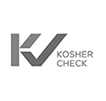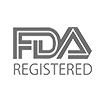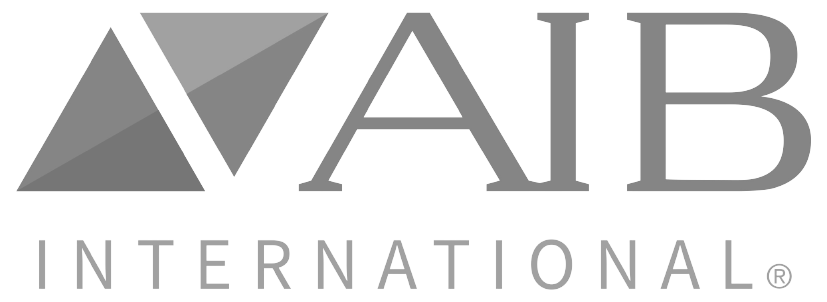How to Start a Coffee Shop
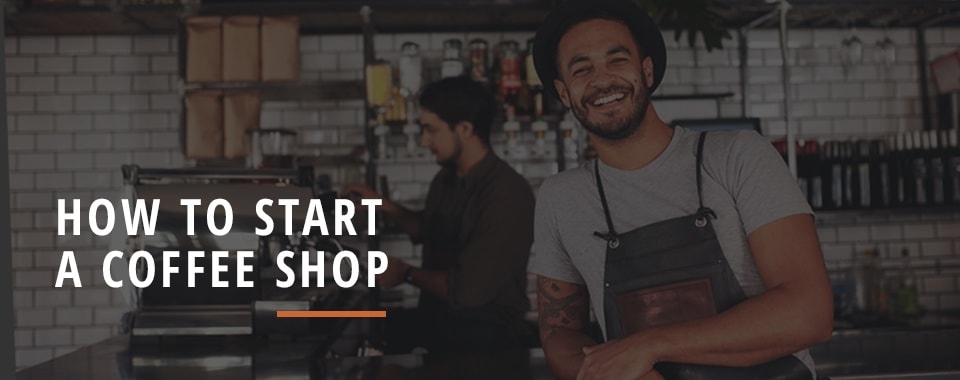 As America’s favorite pick-me-up, fresh-brewed coffee practically sells itself. The number of coffeehouses in the U.S. rose above 37,000 in 2019. An impressive 63% of Americans drank a cup of coffee in the past day, according to 2019 data. For coffee lovers with entrepreneurial ingenuity, starting a coffee shop business can be an excellent investment. If you want to know how to start your own coffee shop, we have your answers.
As America’s favorite pick-me-up, fresh-brewed coffee practically sells itself. The number of coffeehouses in the U.S. rose above 37,000 in 2019. An impressive 63% of Americans drank a cup of coffee in the past day, according to 2019 data. For coffee lovers with entrepreneurial ingenuity, starting a coffee shop business can be an excellent investment. If you want to know how to start your own coffee shop, we have your answers.
3 Options For Starting a Coffee shop
Before you start a coffee shop, you’ll have to consider what kind of coffee shop you’ll run. Decide how much freedom and flexibility you want in your business. Generally, there are three options when it comes to starting a coffee shop:1. Purchase a Franchise
Successful coffee chains often use a franchise model, where people can pay franchise fees to operate their own coffee shops under the company name. As a franchise owner, a lot of the business decisions are made for you. The company might select a location and supply you with a ready-to-go business model and menu. You’ll get brand recognition from day one as well as business help right from the start. When you purchase a franchise, you act as an investor in the company you franchise under. While you front a lot of the cost, you’ll also pay ongoing royalty fees. You won’t be able to add to or change the menu, and you’ll face approvals from the company at every step of the way. There are many pros and cons to franchising, so you’ll have to decide what’s right for your new coffee shop.2. Buy an Existing Business
An alternative to a franchise, an established coffee shop gives you more flexibility alongside a turnkey business model. However, you’ll need to be a bit more business-savvy to take over another operation, because you can’t rely on the brand and advice of a larger entity. You’ll also have to research the business before you buy it. If the coffee shop is already successful, there may be a delicate business model in place. A new formula could hurt sales in unexpected ways. A successful business for sale is also a bit of a rarity. Another option is to find a coffee shop that’s under-performing and create a new strategy to help it grow.3. Start from scratch
Are you a master barista, ready to serve up specialty coffee? If you want complete flexibility over your business and your coffee shop’s menu, your best option is to start from scratch. You’ll find a location, renovate it into a coffee shop and build up a customer base from the ground up. There’s a lot that goes into starting a brand new coffee business, but with a great idea and a strategic location, an independent coffee shop can skyrocket to success.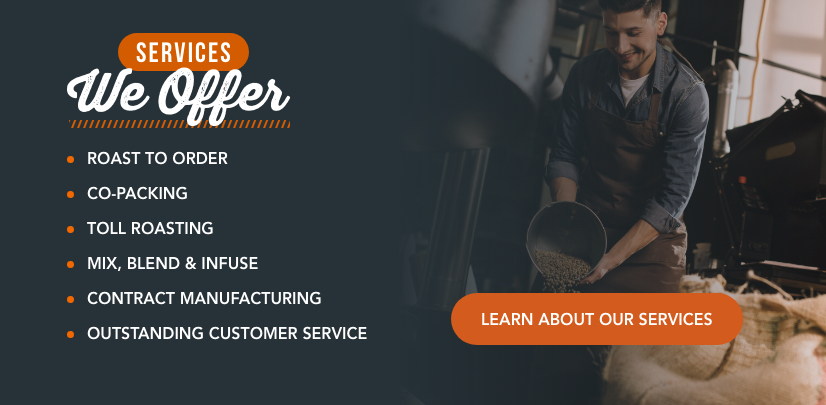
How to Start a Coffee Shop from Scratch
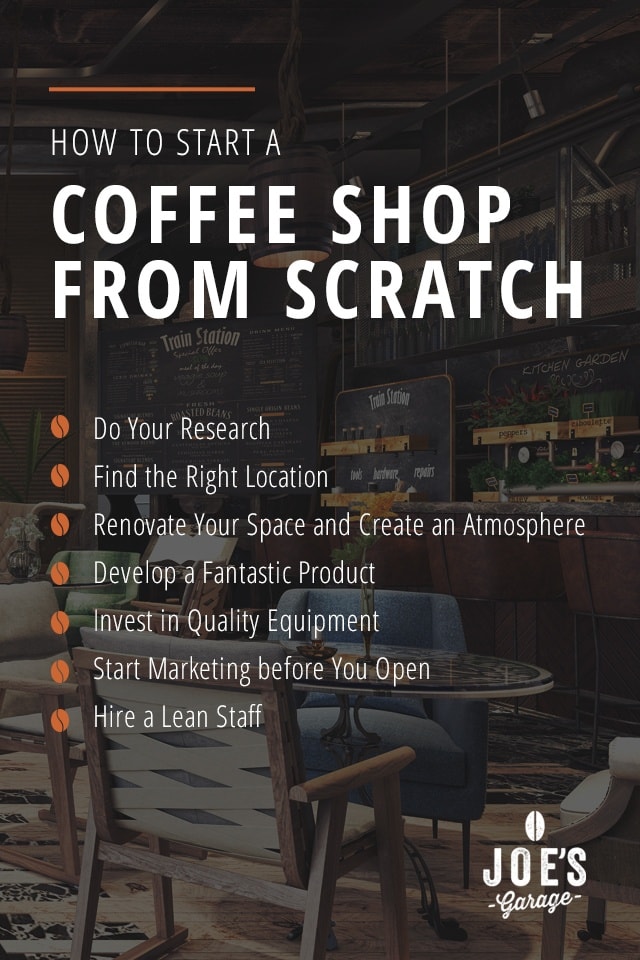 The most freedom and hard work comes to those who start their coffee shops from the ground up. It will take cunning, creativity, and a lot of elbow grease. Still, when you run a successful coffee shop, you get to be your own boss and know you did it all yourself. With a good plan and strong commitment, you can build your neighborhood’s hottest new java spot.
The most freedom and hard work comes to those who start their coffee shops from the ground up. It will take cunning, creativity, and a lot of elbow grease. Still, when you run a successful coffee shop, you get to be your own boss and know you did it all yourself. With a good plan and strong commitment, you can build your neighborhood’s hottest new java spot.
Step 1. Do Your Research
As with any business, opening a successful coffee shop starts with a plan. A coffee shop business plan will be your road map to success. It will also ensure you go into your new venture with a realistic vision and a good deal of knowledge at your disposal. A smart business plan should help you organize your coffee shop ideas and drive your business research. To start a coffee shop, write a business plan that outlines your idea in full, including:- General information about your business, what it is, and who it serves.
- A plan for profitability that includes how many sales it will take to turn a profit.
- Market research about your target customers and demographics for your ideal location.
- An analysis of your competitors’ strengths and weaknesses.
- Sales and revenue projections.
- Recurring costs, such as rent, salaries, and supplies.
- A sample menu and product offerings.
- Goals and milestones.
Step 2. Find the Right Location
Critical to opening a profitable cafe is the perfect location. Most cafes rely on a central location and proximity to draw in customers. When someone craves a coffee, the cafe that comes to mind first is often the one right around the corner. You should also know that rent goes up the more traffic and visibility a location has. The key to success, then, is to find a good place with affordable rent. Depending on the place you choose, you’ll also need to consider convenience. If you plan to have a drive-through in your coffee shop, you’ll want it to be easy to get to from the road. You might also need ample parking and a short distance between your shop and nearby offices and schools. With the growing popularity of bicycles in urban areas, cyclists will appreciate a convenient place to lock up their bikes.Step 3. Renovate Your Space and Create an Atmosphere
Another way to determine a good location is to look at what a building or storefront was before. If you buy a former restaurant, you’ll already have many of the trappings of a cafe set up and ready to go. Between seating areas, counters, public restrooms, and a kitchen, you’ll spend less on construction for the perfect coffeehouse.
Keep in mind that the atmosphere is vital to a coffee shop’s success. Customers use a cafe as a casual place to meet up with friends. A trendy, cozy environment will encourage guests to stay longer, so your coffee shop’s design is vital. You’ll need comfortable seating and a good flow of foot traffic. There should be space for customers to form a line before the counter, and enough space for busy baristas to make and serve a good cup of joe.
Step 4. Develop a Fantastic Product
For speed and convenience, coffee drinkers turn to big chains. At an independent coffee shop or chain, they look for high-quality drinks and craft coffee. That’s great for growing cafes because gourmet coffee makes up 60% of consumption among coffee drinkers. Consumption of espresso-based beverages is also at an all-time high, at 24%. How you price your products will depend on your location and your customers. You’ll usually enjoy a higher markup on specialty drinks, which places quality products at the top of your list.
To provide the most premium products for your customers, you should find excellent suppliers. First, you’ll need to source fresh-roasted beans. Most coffee drinkers will expect a selection of blends and roasts. At the least, you should serve one light, medium, and dark roast each. You may want some single-origins from a few different regions and offer a variety of tasting notes. Supporters of independent coffee shops also look for organic and fair trade options, and superior growing and roasting techniques.
Step 5. Invest in Quality Equipment
To open a popular coffee shop, you have to serve up the best product possible. The secret to great coffee is quality equipment. You’ll need high-quality, commercial-grade equipment, including an espresso machine, grinders, drip coffee makers, a refrigeration system, a water filtration system, and more. With the growing trend of cold brew and Nitro coffee, you might consider a Nitro coffee tap. While all the equipment will cost you a pretty penny, it can be the mark of a truly exceptional cup of coffee.
Another investment in quality will be well-trained, knowledgeable baristas. Your staff will be responsible for crafting great-tasting coffee. Pour-over techniques and latte foam art are both skill-intensive. Your baristas will also be responsible for your unparalleled customer service. Expect to invest in great coffee brewing and customer service as you hire for your business.

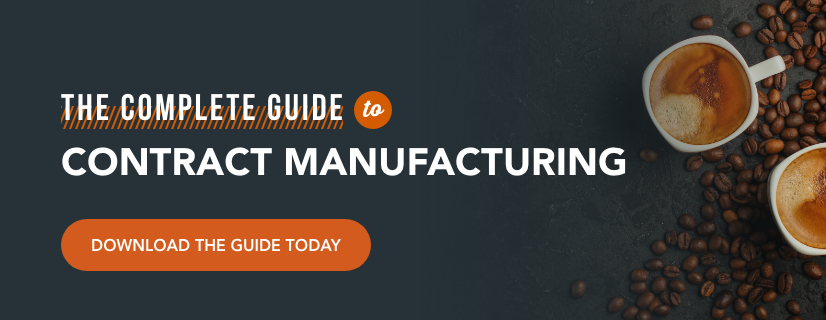
Step 6. Start Marketing before You Open
A busy first day will help you put your best step forward as you kick things off. One crucial element of a coffee shop’s success is the buzz you generate before you open. You’ll naturally pick up some interest in your business during renovations. A simple “coming soon” sign with your logo outside your new space will get your neighborhood excited about your new cafe. You can also generate some awareness for your local business with a strong local network. Your chamber of commerce and business association will help you establish a connection to your city or town. You can also make appearances at some local events, where you give out samples and coupons for your opening day. Drop off some free coffee and flyers at businesses in your vicinity, and don’t forget to tell local news outlets about your new business. Build a social media presence and design a website, too.Step 7. Hire a Lean Staff
Your staff is critical to the success of your business, and they are also a fixed expense. Know what you can afford before you hire too many employees, and be prepared to train each one. You might be best off with some friends or other trusted people before you interview for permanent staff.
A lot happens quickly in a coffee shop, especially during rushes. You’ll need people to handle the register, brew and serve the coffee, and take care of the tables. Know that an interview won’t always be the best measure of how a barista will work in action. Consider trying out new hires for a week or two as a probationary period before offering them a permanent position on the team.
As the owner and a member of the community, customers and staff will appreciate a hands-on approach. Nothing beats an owner who’s out on the floor, works hard, and greets everyone who walks in. Full-engagement with your new business means one less manager you’ll need to hire. It will also let you keep your finger on the pulse of your market and adjust your strategy when you hit bumps along the way.
Coffee Shop Startup Cost
Opening your own coffee shop takes lots of time, effort, and of course, cash. Before you sign your name on any checks, you should have a good sense of the startup costs. Every aspect of your business will need a significant investment, so budget accordingly: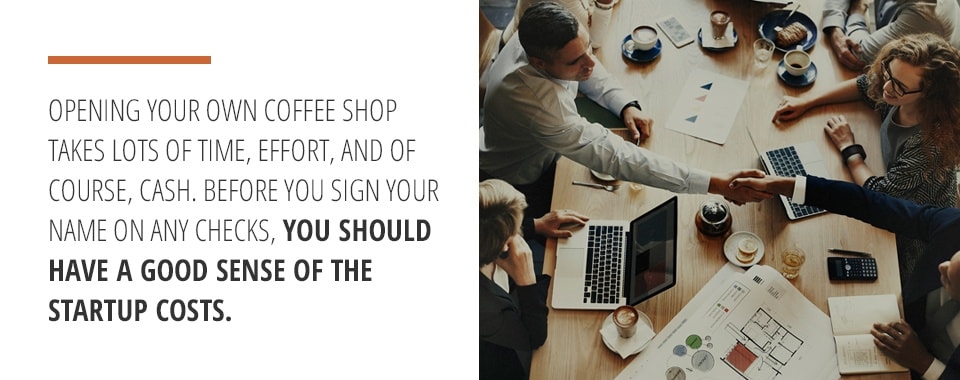
- Equipment. A commercial espresso machine can cost up to $20,000. You’ll also need a drip coffee maker, a coffee grinder, a water filtration system. You might need refrigeration for cream and milk. Finally, you’ll also need to buy a cash register or a way to accept credit cards.
- Supplies. Your cafe should start with a well-stocked inventory. The stock of coffee and tea will run you about $2,000, and supplies such as napkins, straws, and sugar packets might cost a similar amount. Try not to buy more than you can unload in the first month to keep supplies fresh.
- Food. Even the best coffee shops won’t survive on coffee sales alone. While a full food menu is labor-intensive, most coffee shops offer an array of pre-made sandwiches, pastries granola bars, and yogurts. Source these items locally if you prefer not to make food yourself.
- Property. Ideally, the cost of your rent should not exceed 15% of your sales. When you rent a commercial space, you’ll have to put up first and last month’s rent before you’ve made a single sale. As part of your startup costs, you’ll also have to consider renovations as well as tables, chairs, and decor.
Total Startup Cost for Different Types of Coffee Shops
Your coffee shop’s startup cost will depend on many factors. A great location in a bustling city will have a much higher rent, for example. Opening coffee shops with more square footage will cost more to rent, too. The type of cafe you run will also determine the space, staff, and equipment costs you need: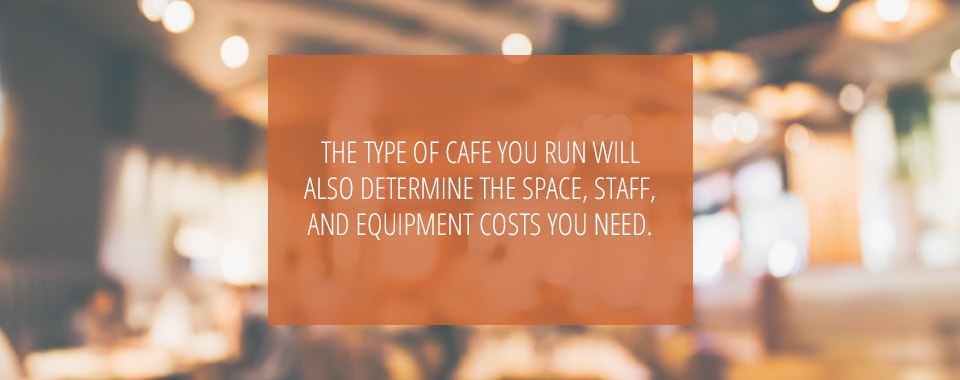
- Sit-down coffee shop. Startup costs will be anywhere from $200,000 and $375,000.
- Coffee kiosk. Expect to put up between $25,000 and $75,000.
- Drive-through coffee shop. Initial costs will range from $80,000 and $200,000.
- Franchised sit-down coffee shop. Franchise and licensing fees can bump startup costs to as much as $673,700.
Contact the private label coffee experts today
Partner with Joe’s Garage Coffee
 Serve up great coffee with a top-notch supplier you can trust. With the superior quality of Joe’s Garage Coffee, you’ll give your future customers a cup of joe they can’t get anywhere else making it the perfect choice for starting a coffee shop business. We have a selection of single-origin coffees from around the world that we use to make custom blends with tasting notes for a one-of-a-kind taste. You’ll be able to give choosy customers a fantastic variety from among our ready-to-brew house blends, single-origin or organic beans, and teas.
We offer low starting minimums to help you grow, and have the capacity for large quantities as you attract more loyal customers. We even give you the option to package your coffee for resale. As your great-tasting coffee gains loyalists, you can sell packaged coffee in-house and through retailers, so your customers can get their favorite coffee shop blend at home, too.
For fantastic craft coffee, let Joe’s Garage Coffee supply your cafe with custom, premium roasts that compliment your brand. Learn more about the many services we can offer your startup cafe today.
Serve up great coffee with a top-notch supplier you can trust. With the superior quality of Joe’s Garage Coffee, you’ll give your future customers a cup of joe they can’t get anywhere else making it the perfect choice for starting a coffee shop business. We have a selection of single-origin coffees from around the world that we use to make custom blends with tasting notes for a one-of-a-kind taste. You’ll be able to give choosy customers a fantastic variety from among our ready-to-brew house blends, single-origin or organic beans, and teas.
We offer low starting minimums to help you grow, and have the capacity for large quantities as you attract more loyal customers. We even give you the option to package your coffee for resale. As your great-tasting coffee gains loyalists, you can sell packaged coffee in-house and through retailers, so your customers can get their favorite coffee shop blend at home, too.
For fantastic craft coffee, let Joe’s Garage Coffee supply your cafe with custom, premium roasts that compliment your brand. Learn more about the many services we can offer your startup cafe today.




